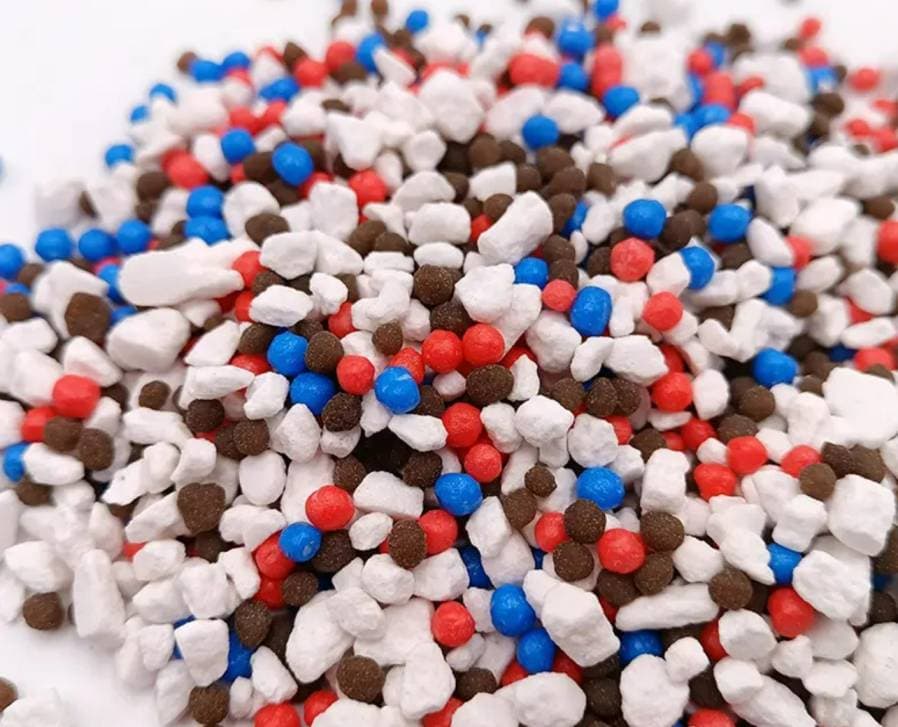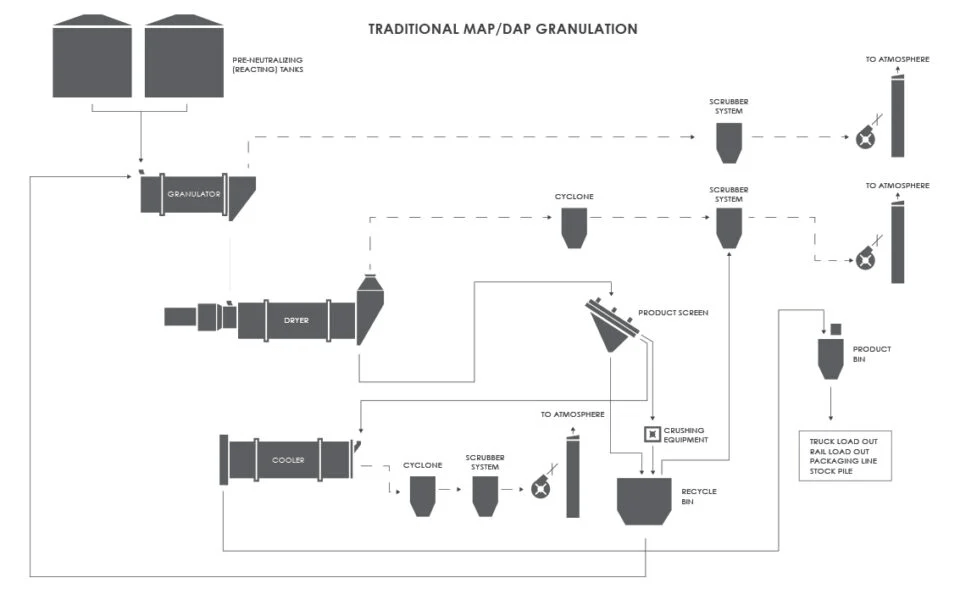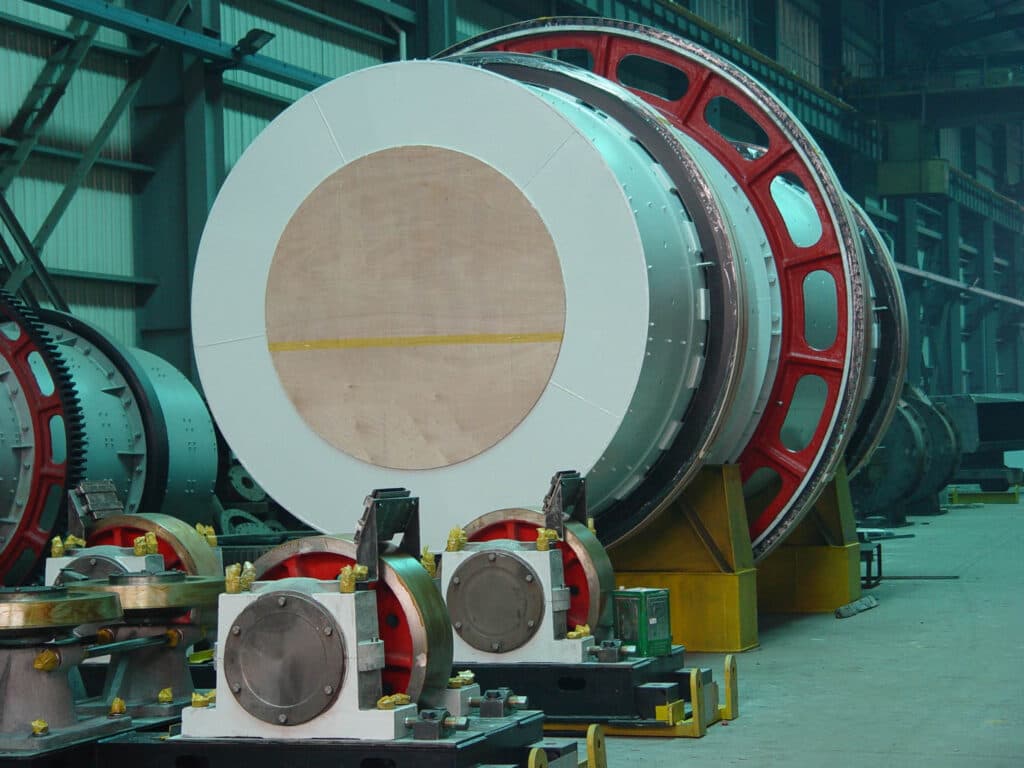Using Agglomeration to Improve the Flowability of Bulk Solids
In industrial production, the flow properties of bulk solids have a critical impact on production efficiency and final product quality. Although silos, hoppers, etc. are often designed to minimize flow problems, agglomeration is an effective means of improving the flow of bulk solids.
The Impact of Poor Flow
The flow characteristics of the material are critical to maintaining a consistent end product output. Poor flowability can lead to phenomena such as arching, bridging, segregation, and rat holes, which not only lead to lower yields, but also affect product quality and increase production costs. As a result, optimizing flow has become a central focus of many industrial processing operations.

Factors affecting flowability
Cohesion and Adhesion
Cohesion and adhesion are key factors affecting material flow. Cohesion is the likelihood of the material sticking to itself, while adhesion is the likelihood of the material sticking to other objects.
Particle Size and Particle Shape
Particle size and particle shape also affect material flowability. Powders usually flow less well than coarse particles or agglomeration, while spherical particles flow better due to less surface contact.
Particle Density and Moisture Content
Particle density and moisture content significantly affect the flowability of a material. Higher density particles are more likely to flow better, while the higher the moisture content, the greater the cohesion of the material, leading to problems such as agglomeration.
Temperature and Stagnation Time
Temperature and the stagnation time of the material in storage or in bins and hoppers may also affect flowability. Forces such as pressure, chemical reactions, etc. may cause particles to bind together in an undesirable manner.

Improving flowability through agglomeration
Agglomeration effectively improves material flow by aggregating fine particles to form larger, more regular particles. Of these, spherical particles flow best because they have the smallest surface contact area and are less likely to lock up with each other. Agglomeration equipment such as needle mixers, disc granulators and rotating drums gradually granulate fine particles into spherical particles by means of strong mechanical action and liquid binders. This method not only improves the fluidity of the material, but also its packing density and resistance to agglomeration.
The agglomeration process usually uses needle mixer, disk granulator and rotating drum and other equipment.
- Needle mixer Under the action of high-speed rotation, the material and liquid binder will be fully mixed to form a uniform mixture, and broken into fine particles.
- Disc agglomeration machine By tilting and rotating the disk surface, the mixture is tumbled on the disk surface to form spherical particles gradually.
- The rotating drum is mainly used for further drying and cooling of granules, and can be used for secondary agglomeration as required.
Application of agglomeration equipment
Agglomeration equipment plays a vital role in the fertilizer production process, especially in the production of organic and compound fertilizers. The following is an overview of the specific applications of agglomeration equipment in fertilizer production lines:
- Agglomeration stage: The core function of agglomeration equipment is to increase the liquid phase content of a dry powder mixture by heating and adding water or steam. Subsequently, the mixture is agglomeration into granules by the rolling action of a disc or drum. This process is essential for the manufacture of uniform and stable composite fertilizer granules.
- Types of equipment: In organic fertilizer production lines, common types of agglomeration equipment include disc and drum granulators. These machines are capable of converting wet powdered materials into granules in a rotating and tumbling environment, and are suitable for processing a wide range of organic raw materials.
- Efficiency: The use of agglomeration equipment significantly improves the efficiency of fertilizer production lines. They shorten production cycles and reduce energy consumption through rapid molding and uniform agglomeration. In addition, agglomeration plants optimize the physical properties of the pellets, increasing the competitiveness of the product in the market.
- Quality Improvement: Agglomeration equipment not only improves production efficiency, but also improves product quality and market competitiveness by improving the physical properties of the granules. For example, after agglomeration of potash powder, its physical properties are significantly improved: cohesion is reduced, fluidity is enhanced, and stacking density is increased.
In summary, agglomeration equipment is an indispensable key component in modern fertilizer production, they not only improve the production efficiency, but also through the enhancement of product quality, for the fertilizer production line to bring significant economic benefits and market advantages.
How to choose the right agglomeration equipment?
- Selecting the right agglomeration equipment is a decision-making process that requires a combination of factors, including process requirements, material characteristics and production scale. The following is an optimized representation of some of the key steps and considerations:
- Define the process requirements: First, the objectives of the agglomeration process need to be defined, such as improving material flow, increasing particle density or improving product uniformity. Different objectives may require different types of equipment. For example, if high intensity mixing is required, a high shear mixer may be chosen; if the objective is to form uniform granules, a fluidized bed agglomeration machine may be required.
- Evaluate material properties: It is critical to have an in-depth understanding of the properties of the material to be processed, including particle size, density, moisture content and flowability. These characteristics will influence equipment selection. For example, fluidized bed equipment may be a more appropriate choice for materials with high moisture content, while a high-shear mixer may be more appropriate for materials that require high-intensity mixing.
- Consider the scale of production: Select equipment based on the scale of production. Small-scale production may only require laboratory-grade equipment, while large-scale production may require industrial-grade equipment. The equipment selected should be able to meet current production needs and be scalable for future growth.
- Selecting the type of equipment: Common types of agglomeration equipment include needle mixers, disk granulators, and rotary drums. Each type of equipment has its unique advantages and applicable scenarios. For example, needle mixers are suitable for rapid mixing and agglomeration, while disk granulators are more suitable for producing uniform spherical pellets.
- Selecting an equipment supplier: It is critical to choose a reliable equipment supplier who can offer a full range of services from system design to process integration, and who can provide customized solutions for specific needs.
By following these steps, you can more effectively select the right agglomeration equipment to meet specific production needs and process goals, ensuring efficient production processes and consistent product quality.

Manufacturer of agglomeration equipment
TONGLI is a leading global supplier of equipment for agglomeration systems, specializing in providing comprehensive solutions from process development to customized equipment. Below are TONGLI’s key strengths and services in the field of agglomeration system equipment:
- Feasibility and Pilot Scale Tests: TONGLI provides detailed feasibility studies and pilot scale tests to ensure that the customer’s material will achieve optimal agglomeration in actual production. These tests help determine the most suitable process parameters and equipment configuration.
- Customized agglomeration equipment: TONGLI offers customized agglomeration equipment based on specific customer needs. These machines can be adapted to different material properties and production requirements to ensure optimal productivity and product quality.
- Complete system solutions: TONGLI offers not only single machines, but also complete agglomeration system solutions. This includes the design and implementation of the entire production line from raw material handling to finished product packaging, ensuring the smooth running of the entire production process.
- Spare parts and service support: In order to ensure the long-term stable operation of the equipment, TONGLI provides comprehensive spare parts and service support. This includes equipment maintenance, upgrades and technical support to ensure that problems encountered by customers in the course of use can be resolved in a timely manner.
TONGLI’s comprehensive services and expertise make it a leader in the field of agglomeration system equipment, which can effectively help customers optimize production processes and improve product quality. For more information on agglomeration equipment, please contact us for professional advice and support.

